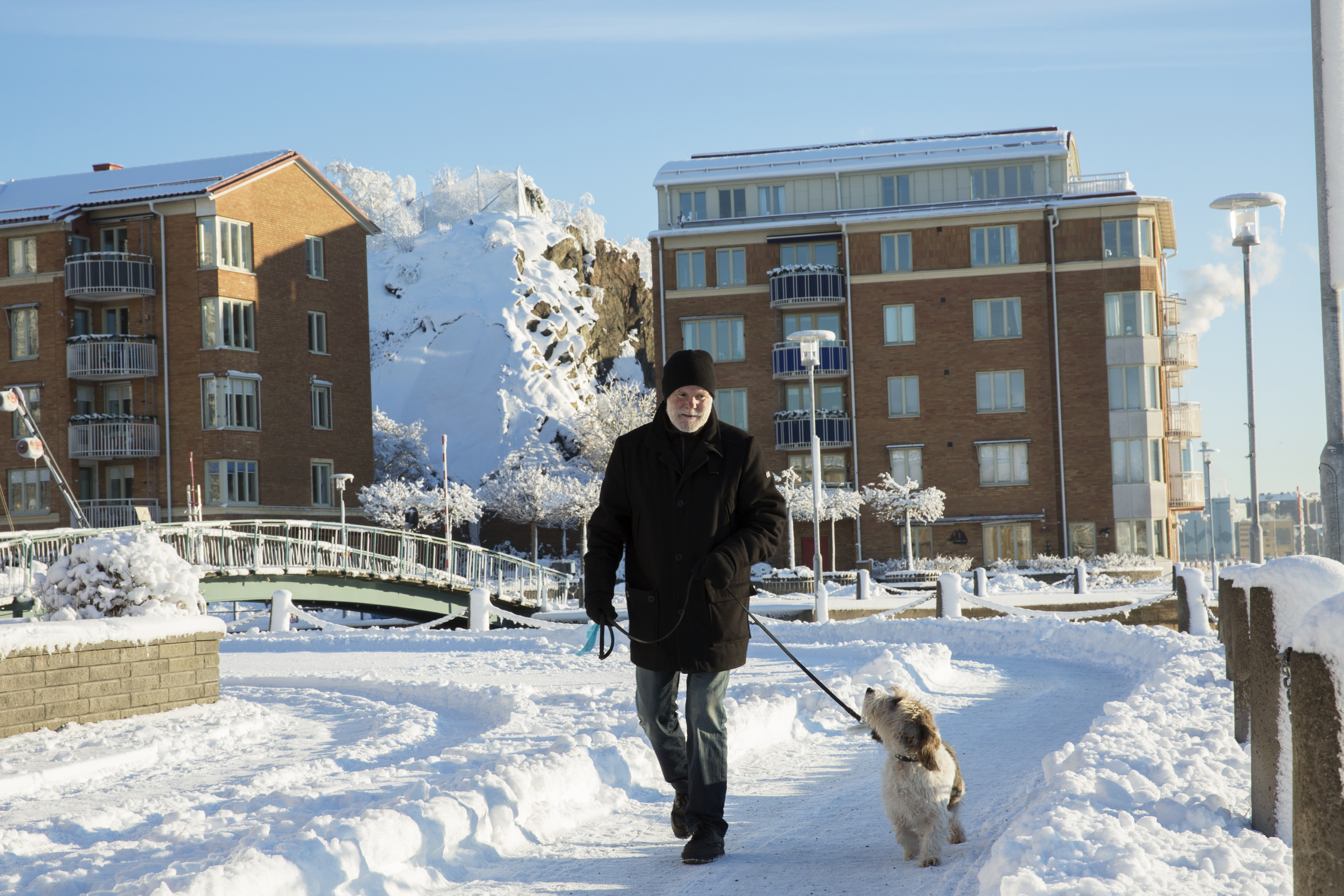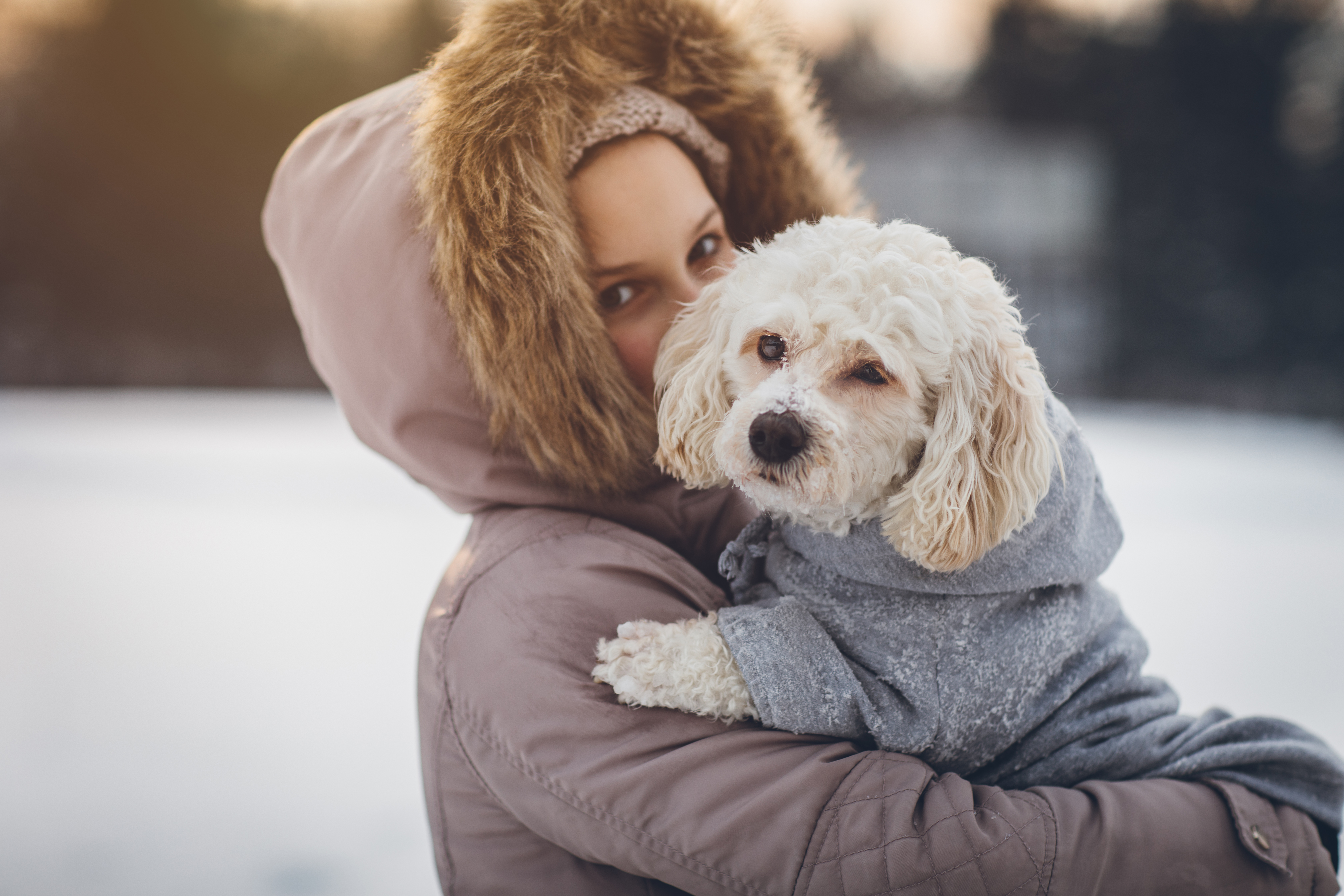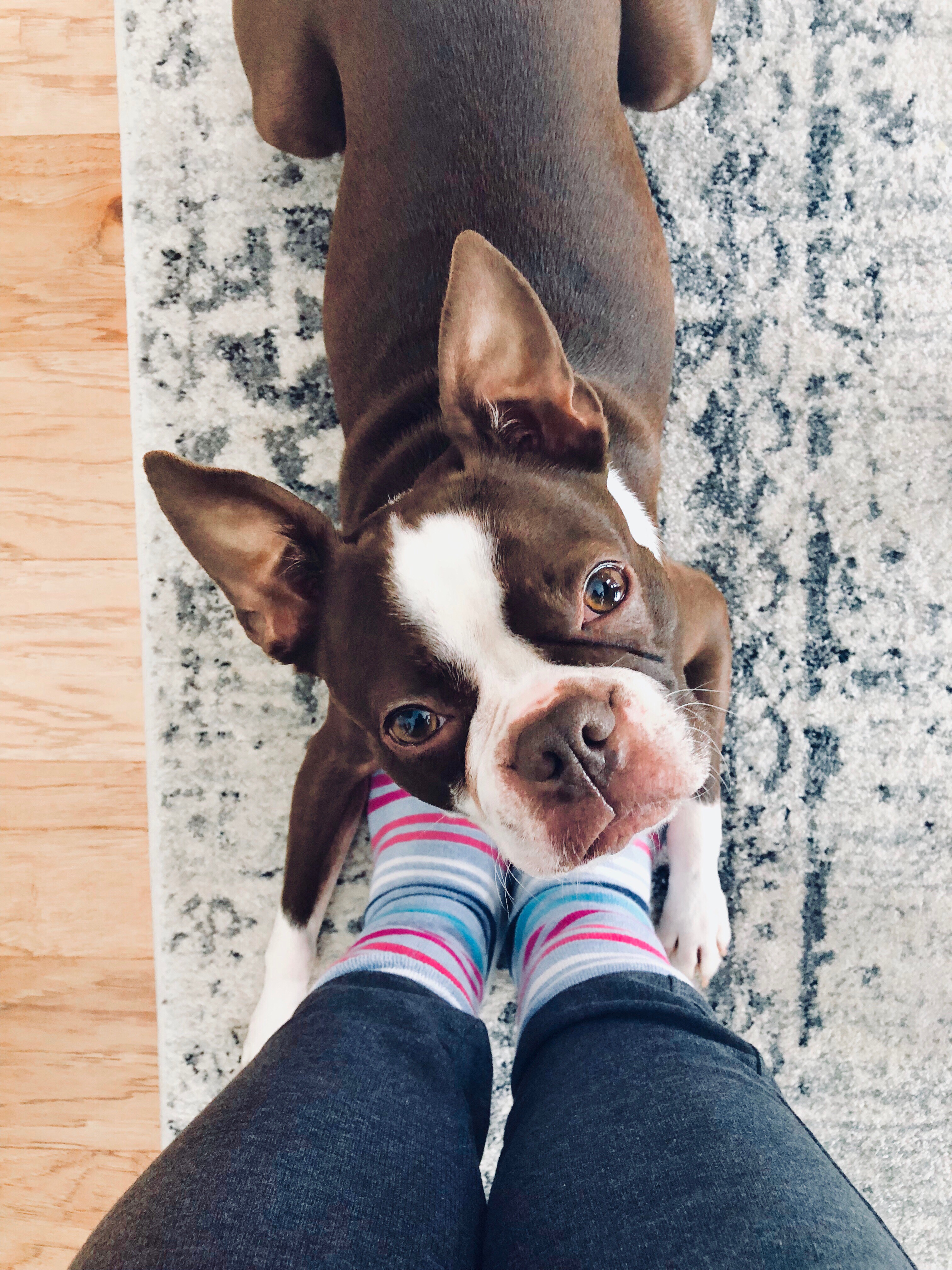Here’s how to speak the millennial language with your home design and staging.
Snow way, Spot! How to keep your furry friends safe this season
Community association residents love their pets, so keeping them safe in the winter should be a top priority. Here are some ways you can ensure Fido and Felix stay warm, happy, and out of harm’s way even on the dreariest of winter days.
These paws were made for walking—to a point. Watch out for sidewalk salt. Pets’ paws are extremely sensitive, so prolonged exposure to sidewalk salt can be problematic. If you walk your dog regularly in areas where sidewalk salt is used during inclement weather, wipe the underside of paws with warm water and a clean towel when you go inside. Doing so also eliminates risk of ingestion if your pup licks its paws often. Keep an eye on your pet’s toe pads for severe dryness, cracking, or bleeding.


The weather outside is frightful. So bring your pets indoors. In the summer, when temperatures reach extreme highs, pets should be brought inside. The same is true for winter, when temperature reach extreme lows. This applies for daytime and nighttime. Remember, if you’re uncomfortable with the outside air temperature, chances are your pet is too.
Why don’t we bundle up, Buttercup. When pets do go outside during the winter, those with thinner fur coats may need extra warmth. Your local pet store should have an assortment of extra layers for your dog—even winter boots for pups who need extra paw protection from the cold and ice. Only add layers if your pet can truly benefit. If you’re unsure, consult your veterinarian.


All work sleep and no play makes Jack a dull boy. Keep your pets active throughout the winter. During inclement weather, when you can’t make it outside with your pup, set aside some extra time during the day to make sure they get some exercise—even 15 minutes of playtime helps. Paying attention to your pup keeps them engaged and happy, and ensures no bad behavior caused by boredom.
The post Snow way, Spot! How to keep your furry friends safe this season appeared first on Ungated: Community Associations Institute Blog.
Doggy DNA Testing Forcing Residents to Pick up after Their Pets
People love their pets. Regardless if you live in a community association, there is nothing worse than waking up to a pile of pet poop in your front yard. But the problem isn’t that the pets are out of control, it’s that residents don’t take accountability for their pets.
With a surge of residents disregarding signs and choosing not to follow mandated rules, communities now are turning to “doggy DNA†testing.
Dog owners provide the community association with a DNA sample of their pet, typically a cheek swab, which is then sent to a lab where it is registered. If the dog goes in the neighborhood and it isn’t disposed of, the community association can send the sample to the lab for testing. If there is a match, the pet owner is fined.
CAI’s Chief Executive Officer Tom Skiba, CAE, recently spoke to the Capital Gazette about this problem.
A “very small minority†of community associations have started taking these steps in the past five years to curb poop problems, especially as DNA testing has become more cost-effective and accessible, says Skiba.
“It’s not about not liking pets, it’s not about the dogs. It’s about pet owners acting disrespectfully to their neighbors,†explains Skiba. “The boards have already tried all that they can, and they have an obligation to address this for an aesthetic and health reasons. They finally will run out of options, and this DNA testing is the last technologically enabled high-tech option you can find.â€
Community associations typically won’t dish out funds for DNA testing methods unless they’ve tried everything else, including putting up notices, posting pet rules on a website, mentioning it in board meetings, and more.
Should community associations have to take these extreme measures to solve this pet problem?
Think about it, and make sure to carry an extra bag with you on your walk.
The post Doggy DNA Testing Forcing Residents to Pick up after Their Pets appeared first on Ungated: Community Associations Institute Blog.
